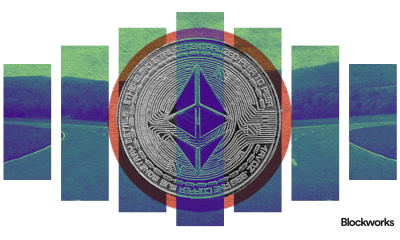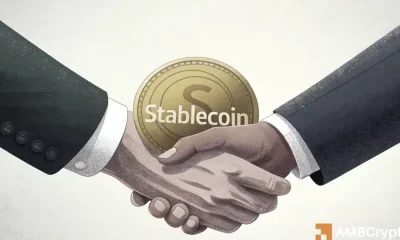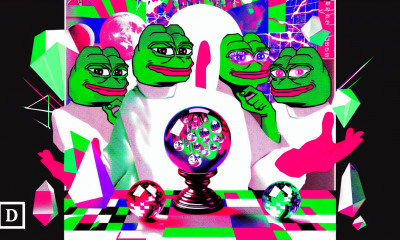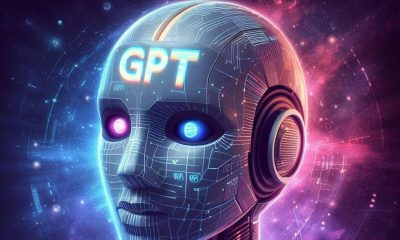

Metaverse
Artificial intelligence is a familiar-looking monster, say Henry Farrell and Cosma Shalizi – Crypto News
Lovecraft’s shoggoths were artificial servants that rebelled against their creators. The shoggoth meme went viral because an influential community of Silicon Valley rationalists fears that humanity is on the cusp of a “Singularity”, creating an inhuman “artificial general intelligence” that will displace or even destroy us.
But what such worries fail to acknowledge is that we’ve lived among shoggoths for centuries, tending to them as though they were our masters. We call them “the market system”, “bureaucracy” and even “electoral democracy”. The true Singularity began at least two centuries ago with the industrial revolution, when human society was transformed by vast inhuman forces. Markets and bureaucracies seem familiar, but they are actually enormous, impersonal distributed systems of information-processing that transmute the seething chaos of our collective knowledge into useful simplifications.
As the economist Friedrich Hayek argued, any complex economy has to somehow make use of a terrifyingly large body of disorganised and informal “tacit knowledge” about supply and exchange relationships. No individual brain or government can possibly comprehend them, which is why Hayek thought that the planned economy was unworkable. But the price mechanism lets markets summarise this knowledge and make it actionable. A maker of car batteries doesn’t need to understand the particulars of lithium-processing. They just need to know how much lithium costs, and what they can do with it.
Likewise, the political anthropologist James Scott has explained how bureaucracies are monsters of information, devouring rich, informal bodies of tacitly held knowledge and excreting a thin slurry of abstract categories that rulers use to “see” the world. Democracies spin out their own abstractions. The “public” depicted by polls and election results is a drastically simplified sketch of the amorphous mass of opinions, beliefs and knowledge held by individual citizens.
Lovecraft’s monsters live in our imaginations because they are fantastical shadows of the unliving systems that run on human beings and determine their lives. Markets and states can have enormous collective benefits, but they surely seem inimical to individuals who lose their jobs to economic change or get entangled in the suckered coils of bureaucratic decisions. As Hayek proclaims, and as Scott deplores, these vast machineries are simply incapable of caring if they crush the powerless or devour the virtuous. Nor is their crushing weight distributed evenly.
It is in this sense that LLMs are shoggoths. Like markets and bureaucracies, they represent something vast and incomprehensible that would break our minds if we beheld its full immensity. That totality is the product of human minds and actions, the colossal corpuses of text that LLMs have ingested and turned into the statistical weights that they use to predict which word comes next.
As the psychologist Alison Gopnik has argued, LLMs are not nascent individual intelligences but “cultural technologies” which reorganise and noisily transmit human knowledge. Chatbots may wear more human-seeming masks than markets and bureaucracies, but they are no more or less beyond our control. We would be better off figuring out what will happen as LLMs compete and hybridise with their predecessors than weaving dark fantasies about how they will rise up against us.
For example, what if LLMs or other forms of machine learning better capture Hayek’s “tacit knowledge” than market prices can? We could see an economy in which artificial entities compete on the basis of non-price-based representations of complex underlying economic relationships. Half a century ago the economist Martin Weitzman suggested that planned economies might use mathematical objects called “separating hyperplanes” to adapt on the fly. Machine learning can find such hyperplanes, making planning more feasible than before. Alternatively, markets might mutate into a poisonous alien ecology where economic agents fight proxy wars using text-spewing and text-summarising LLMs, just as they use crude algorithms to manipulate Amazon Marketplace and search results today. Would such markets be fairer or more stable than today’s? It seems unlikely.
LLMs might give bureaucrats new tools for adjudicating complex situations. Already, algorithms are being used to help decide whether to grant parole or bail to accused criminals. It is not hard to imagine bureaucrats using LLMs to summarise complex regulations or provide recommendations about how to apply them to novel situations. It could prove impossible to evaluate how well they work, as LLMs don’t leave paper trails. But that might not stop their deployment.
Democratic politics, too, may be transformed. Already, researchers talk about substituting LLMs for opinion polls—they may be out of date, or inaccurate, but polls can be inaccurate, too, and you can interrogate LLMs more dynamically. Perhaps chatbots will help improve democratic debate, helping people clarify what they believe, or turn quarrels into agreement. Or, instead, they might degrade debate with their tendency to spin convincing factoids from thin air, and their capacity to flood online discussion with spurious opinions that purport to come from real people.
Repurposing the shoggoth might help us begin to answer these questions. Rather than speculate about the motives of intelligent AIs, we could ask how LLMs might interact with their older cousins. The modern world has been built by and within monsters, which crush individuals without remorse or hesitation, settling their bulk heavily on some groups, and feather-light on others. We eke out freedom by setting one against another, deploying bureaucracy to limit market excesses, democracy to hold bureaucrats accountable, and markets and bureaucracies to limit democracy’s monstrous tendencies. How will the newest shoggoth change the balance, and which politics might best direct it to the good? We need to start finding out.
Henry Farrell is a professor of international affairs and democracy at Johns Hopkins University, and co-author of “Underground Empire: How America Weaponized the World Economy”.
Cosma Shalizi is a professor of statistics and machine learning at Carnegie Mellon University and external faculty member at the Santa Fe Institute.
© 2023, The Economist Newspaper Limited. All rights reserved. From The Economist, published under licence. The original content can be found on www.economist.com
Download The Mint News App to get Daily Market Updates.
Updated: 21 Aug 2023, 02:57 PM IST
-

 Cryptocurrency1 week ago
Cryptocurrency1 week agoEthereum protocol update details plan to boost transaction capacity with blobs – Crypto News
-
Technology1 week ago
XRP Ledger Secures Major Win, Powering China’s Top Supply Chain Firm – Crypto News
-
Business1 week ago
Gemini Launches XRP Credit Card Amid Ripple-Backed IPO Plans – Crypto News
-
others7 days ago
Ripple’s RLUSD Launches on Aave’s Horizon RWA Market as Adoption Expands – Crypto News
-
others7 days ago
Ripple’s RLUSD Launches on Aave’s Horizon RWA Market as Adoption Expands – Crypto News
-

 Cryptocurrency1 week ago
Cryptocurrency1 week agoHow stablecoin inflows are shaping the L1 price race – Crypto News
-

 Technology1 week ago
Technology1 week agoGoogle’s Gemini 2.5 Flash Image does it all – From blurring backgrounds to multi-image fusion – Crypto News
-

 Technology1 week ago
Technology1 week agoGoogle’s Gemini 2.5 Flash Image does it all – From blurring backgrounds to multi-image fusion – Crypto News
-

 De-fi7 days ago
De-fi7 days agoBinance Lists Dolomite’s DOLO Token, Adds Fifth Lira Pair – Crypto News
-

 Blockchain1 week ago
Blockchain1 week agoOne Year After Pavel Durov’s Arrest: What’s Ahead? – Crypto News
-
others1 week ago
United States CFTC S&P 500 NC Net Positions climbed from previous $-192.1K to $-171.5K – Crypto News
-

 Technology1 week ago
Technology1 week agoPermit to Starlink bars copying, decryption of Indian data overseas: MoS Telecom – Crypto News
-

 Blockchain1 week ago
Blockchain1 week agoBitcoin Dives As On-Chain Data Shows Every Cohort Now Selling – Crypto News
-
others1 week ago
Breaking: U.S. Government to Begin Issuing GDP Data on Blockchain in Latest Crypto Push – Crypto News
-
Business1 week ago
BlackRock Buys $300M in Ethereum as Crypto ETF Inflows Return – Crypto News
-

 Blockchain7 days ago
Blockchain7 days agoDecoding Google’s Layer-1 blockchain: what it means and what we know – Crypto News
-

 Blockchain7 days ago
Blockchain7 days agoGoogle’s Rich Widmann shares LinkedIn update on Universal Ledger blockchain – Crypto News
-

 Business2 days ago
Business2 days agoPYMNTS’ Summer of Big Quotes, From Tariffs to Trust Codes – Crypto News
-

 Blockchain1 week ago
Blockchain1 week agoEthereum Breaks 8-Year Resistance Against Bitcoin, Needs Confirmation On The 2W Timeframe – Crypto News
-

 Technology1 week ago
Technology1 week agoGoogle is working on Quick Share for iPhone: Here’s everything we know so far – Crypto News
-

 Blockchain1 week ago
Blockchain1 week agoAnimoca, Antler’s Ibex Launch Fund to Tokenize Japan’s IP – Crypto News
-
Technology1 week ago
Morgan Stanley Flips to September Rate Cut Call: Here’s What Changed – Crypto News
-
Business1 week ago
Pi Network Hackathon Winner Hints at Coinbase Listing Amid Pi Open Source Transition – Crypto News
-

 Cryptocurrency6 days ago
Cryptocurrency6 days agoPhilippine Senator Suggests Putting National Budget On-chain – Crypto News
-
Business6 days ago
Scott Bessent Says 11 ‘Strong’ Candidates in Line to Replace Fed Chair Powell – Crypto News
-

 Technology6 days ago
Technology6 days agoPUMP circulating supply shrinks as Pump.fun’s total buybacks surpass $58M – Crypto News
-

 Cryptocurrency5 days ago
Cryptocurrency5 days agoSouth Korea Busts Hacking Syndicate After Multi-Million Dollar Crypto Losses – Crypto News
-

 Technology1 week ago
Technology1 week ago18 months after surgery, Elon Musk’s first brain chip patient is playing Mario Kart and planning to start a business – Crypto News
-

 Technology1 week ago
Technology1 week agoOpenAI posts first job openings for its New Delhi office: Check vacancies, eligibility and how to apply – Crypto News
-

 Technology1 week ago
Technology1 week agoTop 9 premium smartwatches you should buy in 2025 if you’re focused on features, not just price – Crypto News
-

 Cryptocurrency1 week ago
Cryptocurrency1 week agoTop Crypto Market Makers and How to Choose One – Crypto News
-

 Blockchain1 week ago
Blockchain1 week agoCanary Capital Files “American-Made” Crypto ETF Amid SEC Delays – Crypto News
-
Business1 week ago
Pepe Price Forecast as $19M Net Outflows Signal Accumulation: Is a 130% Rally Next? – Crypto News
-

 Blockchain1 week ago
Blockchain1 week ago215% PENGU Rally Incoming? Analyst Says Token ‘Inches’ From Next Leg Up – Crypto News
-

 De-fi1 week ago
De-fi1 week agoCircle Mints $500 Million USDC in $250 Million Batches, Hits $25 Billion USDC on Solana in 2025 – Crypto News
-
Business1 week ago
CR7 Meme Coin Hits $5M Market Cap Then Dumps Following $143M Rug Pull – Crypto News
-
Business1 week ago
Morgan Stanley Flips to September Rate Cut Call: Here’s What Changed – Crypto News
-

 De-fi1 week ago
De-fi1 week agoCrypto and DeFi in 2026: Adoption, Innovation, and the Road Ahead – Crypto News
-
Business1 week ago
Donald Trump Jr.’s VC Firm Invests ‘Millions’ in $1B Crypto Platform Polymarket – Crypto News
-
Technology6 days ago
Pump.fun Buys Back $58M PUMP Tokens; Price Up 4% – Crypto News
-

 Technology6 days ago
Technology6 days agoMint Explainer | A web for machines, not humans: Decoding ex-Twitter CEO Parag Agrawal’s next big move – Crypto News
-

 Technology1 week ago
Technology1 week ago‘Investing in OpenAI is high risk’: ChatGPT maker issues stark warning to investors – Crypto News
-

 others1 week ago
others1 week agoUSD/CAD struggles to gain ground as Fed’s Powell turns dovish on interest rate outlook – Crypto News
-

 De-fi1 week ago
De-fi1 week agoSBI Group Taps Chainlink to Tokenize Assets, Verify Stablecoins – Crypto News
-

 Technology1 week ago
Technology1 week agoGemini taps Ripple to launch limited edition credit card with 4% XRP cashback – Crypto News
-
Technology1 week ago
SEC Delays WisdomTree XRP ETF Decision Until October – Crypto News
-

 De-fi1 week ago
De-fi1 week agoPrediction Market Kalshi to Expand Onchain Presence – Crypto News
-
others1 week ago
SEC Pushes Back Decision on Grayscale’s Cardano ETF – Crypto News
-

 De-fi1 week ago
De-fi1 week agoPantera Capital Seeks $1.25 Billion to Build Solana Investment Vehicle – Crypto News
-

 De-fi1 week ago
De-fi1 week agoPantera Capital Seeks $1.25 Billion to Build Solana Investment Vehicle – Crypto News
















